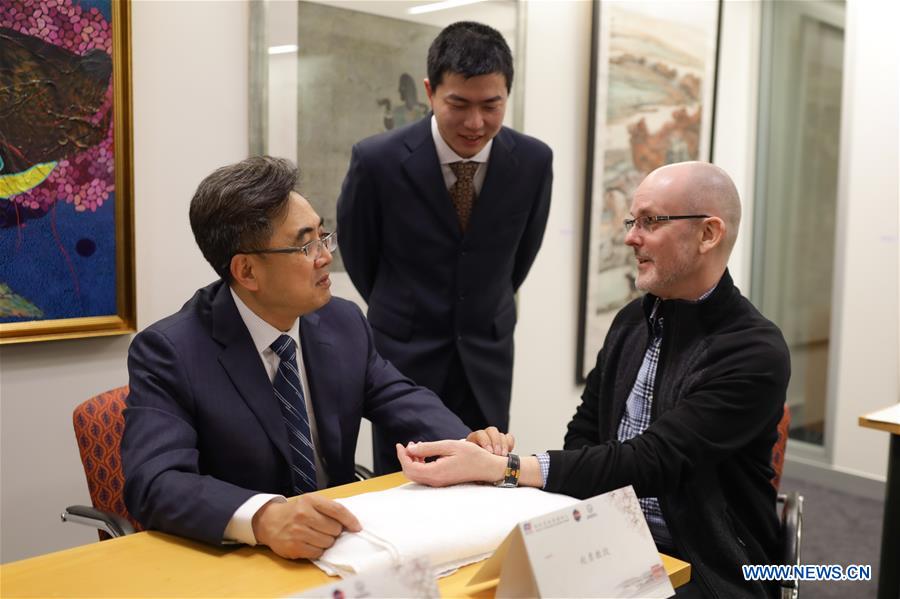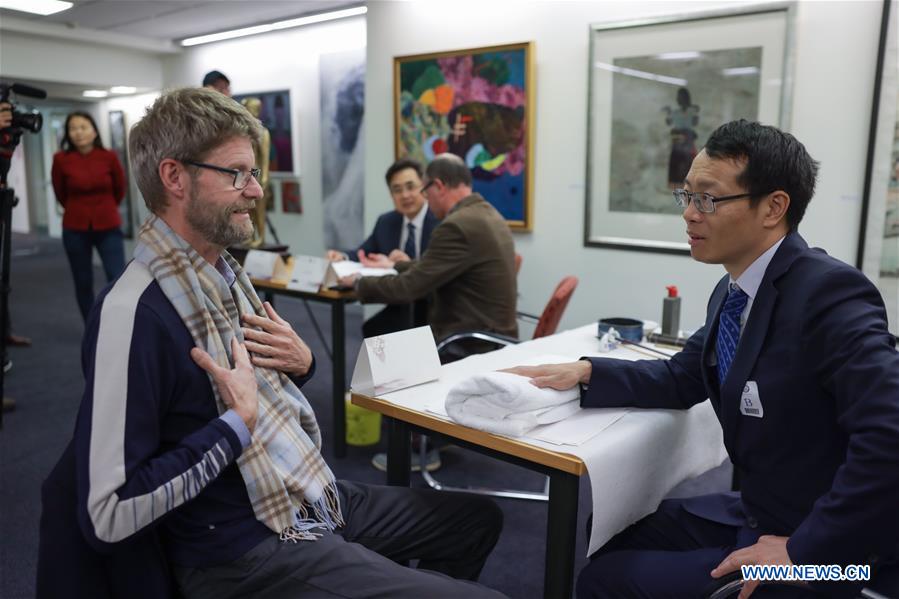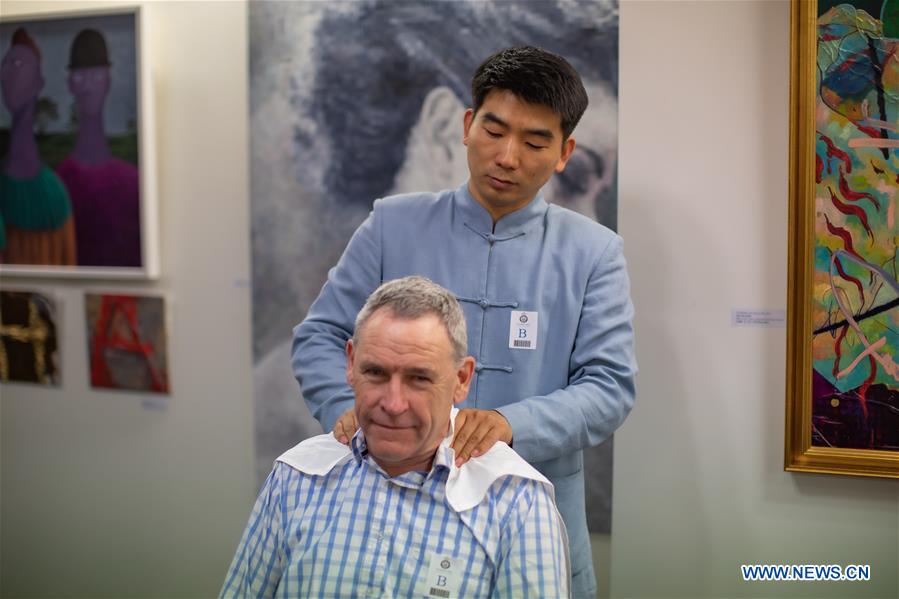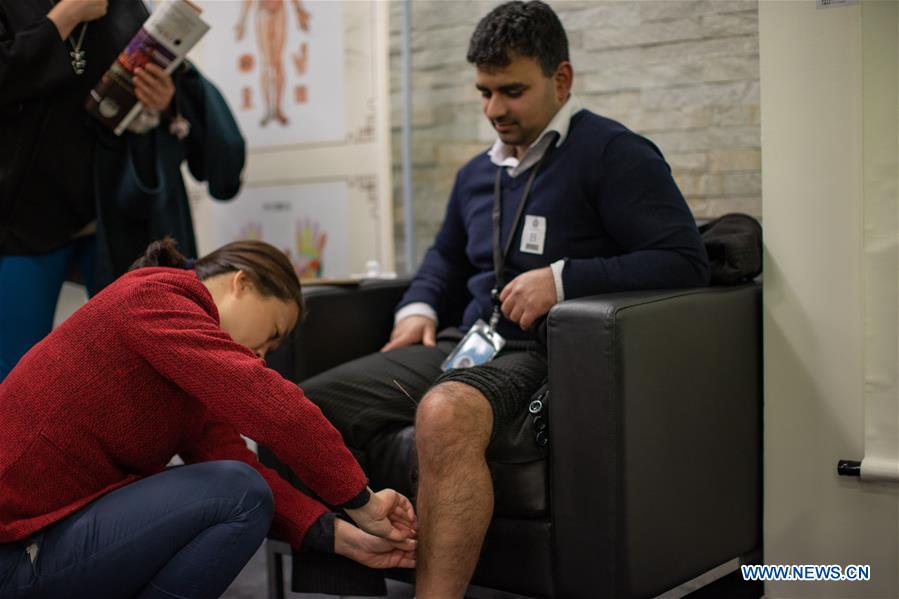Traditional Chinese medicine promotion kicks off in New Zealand
A traditional Chinese medicine promotion kicked off in Wellington at the New Zealand Parliament Building on Thursday.
A traditional Chinese medicine promotion kicked off in Wellington at the New Zealand Parliament Building on Thursday.

A traditional Chinese medicine practitioner(L) feels the pulse of a man during a cultural promotion event at the New Zealand Parliament Building in Wellington, New Zealand, June 27, 2019. [Photo/Xinhua]
Four traditional Chinese medicine practitioners from Beijing, China diagnosed and treated local people.
Raymond Huo, chairman of New Zealand Parliamentary Justice Select Committee, said that the cultural experience of traditional Chinese medicine is in line with the theme of the 2019 China-New Zealand Year of Tourism.
"In the global arena, traditional Chinese medicine is attracting more and more people. Legislation management is the guarantee for the overseas development of traditional Chinese medicine. The EU, the United States and Australia are trying the legislations of traditional Chinese medicine, Chinese herbal medicine and acupuncture. The New Zealand Parliament has included traditional medicine in the legislative plan as early as 2010," said Huo.
"The main reason for the current delay on the progress of overseas traditional Chinese medicine legislation is that we have limited knowledge or understanding of traditional Chinese medicine, and there is a long way to go for international exchange and popularization of traditional Chinese medicine," he added.
Wang Xiaofeng, Director General of the Department of International Cooperation of the National Administration of Traditional Chinese medicine of China, believed this event will promote the cultural exchange between China and New Zealand, so that more New Zealanders can understand traditional Chinese medicine and experience traditional Chinese medicine.
"Traditional Chinese medicine has a history of thousands of years and is an important part of China's profound culture and an advantage and feature of Chinese medical science. Traditional Chinese medicine not only belongs to China, but also belongs to the world. It has spread to 183 countries and regions," Wang said.
"Traditional Chinese medicine not only has advantages and characteristics in the treatment of chronic diseases, functional diseases and complex diseases, but also plays a prominent role in the prevention and treatment of acute infectious diseases," Wang added.
Guo Zongguang, director of the China Cultural Center in Wellington, saw the promotion as an opportunity to strengthen ties between New Zealand and China.
"Under the concept of innovation, coordination, green, openness and sharing, it is necessary to promote traditional Chinese medicine to go overseas."
In the next two days, traditional Chinese medicine practitioners from China will enter New Zealand schools and museums to carry out traditional Chinese medicine product workshop experience activities and carry out traditional Chinese medicine culture promotion and exchange.

A traditional Chinese medicine practitioner(R) talks with a man during a cultural promotion event at the New Zealand Parliament Building in Wellington, New Zealand, June 27, 2019. A traditional Chinese medicine promotion kicked off here at the New Zealand Parliament Building on Thursday. Four traditional Chinese medicine practitioners from Beijing, China, diagnosed and treated local people. [Photo/Xinhua]

A traditional Chinese medicine practitioner massages shoulders of a man during a cultural promotion event at the New Zealand Parliament Building in Wellington, New Zealand, June 27, 2019. A traditional Chinese medicine promotion kicked off here at the New Zealand Parliament Building on Thursday. Four traditional Chinese medicine practitioners from Beijing, China diagnosed and treated local people. [Photo/Xinhua]

A traditional Chinese medicine practitioner(L) gives acupuncture treatment to a man during a cultural promotion event at the New Zealand Parliament Building in Wellington, New Zealand, June 27, 2019. A traditional Chinese medicine promotion kicked off here at the New Zealand Parliament Building on Thursday. Four traditional Chinese medicine practitioners from Beijing, China diagnosed and treated local people. [Photo/Xinhua]

